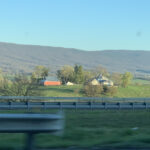Please welcome today’s guest writer, Daniel José Camacho. Daniel graduated in May 2013 from Calvin College with a B.A. in philosophy. Deciding to take a break from graduate school, he returned home to Long Island to work at a civil rights/anti-racism organization. Starting in January 2015, Daniel will resume his M.Div. studies at Duke University Divinity School.
The KKK was increasing its recruitment efforts on Long Island but not appearing to gain much traction. That’s one of the first things I learned while doing social media work at my new internship with a local civil rights/anti-racism organization. This was September 2014, on the heels of Michael Brown’s death in Ferguson.
Why were they not succeeding? One of our local writers argued that the KKK’s efforts did not match Long Island’s style of racism. I agreed. The KKK was approaching things the wrong way. Up here, blatant racism is mostly frowned upon. We’d like to think our racism is much more sophisticated. Better to enact it in code: protecting school districts, resisting affordable housing, promoting safety (from encroaching alien peoples). Part of our northern consciousness is the belief that vile bigotry is a mark of the “backward South.” The Long Island suburbs may consistently rank as the most segregated in the country, but hooded pamphleteers? There are classier means to achieve similar ends.
Several months after this situation, I watched the news that officer Darren Wilson was not indicted for killing an unarmed black teen whom he described as looking like “a demon.” The bitter taste in my mouth was compounded by responses I saw. “First and foremost, we are a nation built on the rule of law…” “The kid was a twerp…” The first statement came from the president. The second statement came from a police officer in my hometown on Long Island. And both of these people were black! Was this the twilight zone? No. White supremacy is not flesh and blood but a principality that affects us all regardless of skin color.
The local police officer ridiculing Michael Brown disturbed me. I’m convinced: police departments need to be reformed, both for the safety of civilians and for the well-being of officers. After hearing about officers (including black and Latino ones) and their supporters criticizing Brown and making the whole situation a matter of supporting law enforcement, I had to pause and ask yet again: How are officers trained? How are they formed? What leads them to such contempt and insensitivity?
I’ve heard all the stories. Cops see everything we don’t see. They do the “dirty work” to protect us. They have families. Their job is life-or-death daily. That’s all true. But that’s still not an excuse for impunity, contempt, for such insensitivity. Do police departments have enough good social workers? Are officers sufficiently supported in the personal difficulties of their job? Personally, I hear jadedness and trauma being used as a justification for brutality and for all sorts of abuse of power.
If you have a “crazy boss” at work with unmanaged anger issues, it can make life suck for employees. The difference with a cop is that when they “snap,” when they don’t deal with certain issues, they can take that out in ways that kill and seriously hurt civilians. It’s a tough job, yes, but it’s also funded by our tax dollars, by the people cops swear to protect, not simply collateral. We need better accountability measures, which includes tackling laws that allow cops (and sometimes civilians) to kill with impunity. We need better police training and support, all of this for the health of people who choose to be cops and for our very lives and safety.
Are police departments cults? Maybe that’s not a serious question. But surely, it would not make sense to place cops above scrutiny, above the moral expectations we have for other people and occupations. I think we need to better understand how police departments work. What are their philosophies of “crime”? What are their policing tactics? What are their histories? Perhaps in seeking to “reform” police departments we can also learn more.
Embarking on some personal research, I decided to find out more about the history of my local cops: Nassau County Police Department. I learned one interesting fact along the way. In the early twentieth century, a Klan leader who led a parade of 2,000 robed men on Long Island also happened to be the police chief of Freeport.







